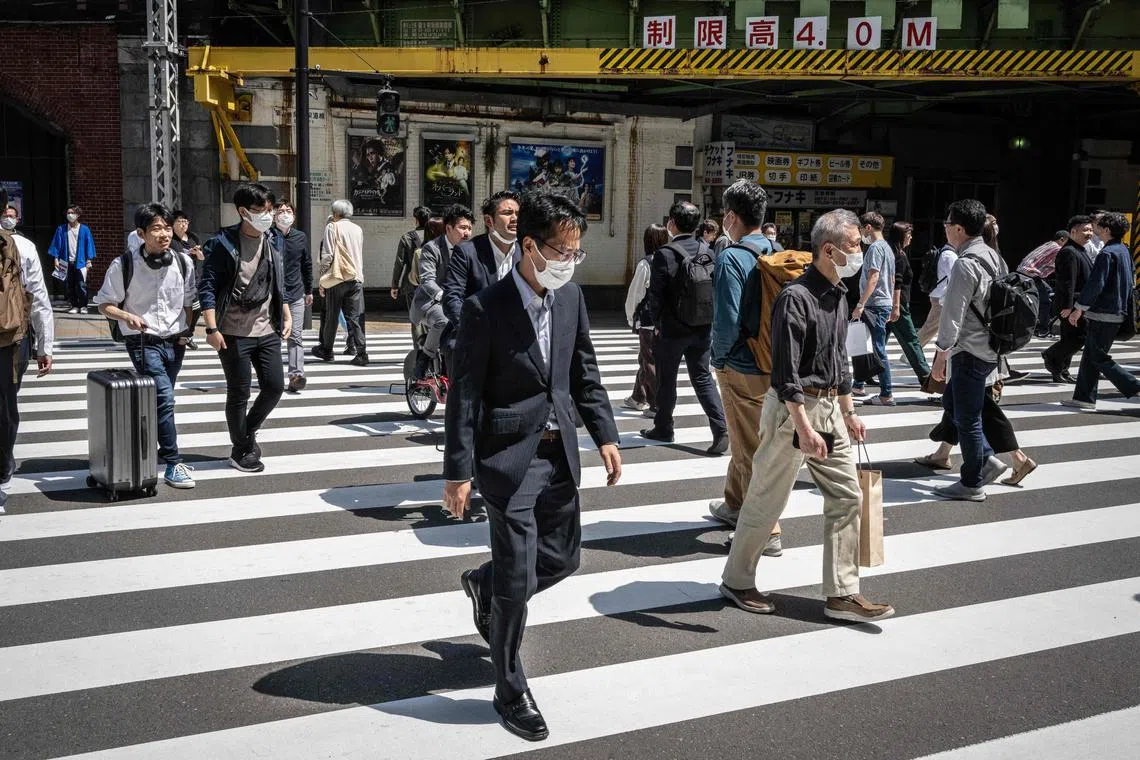Japan economy grows at faster pace in Q1 as businesses spend more
Sign up now: Get ST's newsletters delivered to your inbox

Revised data also showed that Japan avoided a technical recession at the end of last year.
PHOTO: AFP
TOKYO - Japan’s economy expanded at a much faster pace than initially estimated as businesses ramped up spending, a positive development for Prime Minister Fumio Kishida amid ongoing speculation he may call an early election.
Gross domestic product (GDP) grew at an annualised 2.7 per cent in the first quarter from the previous three months, revised figures from the Cabinet Office showed on Thursday. That beat an initial reading of 1.6 per cent and compared with a 1.9 per cent expansion forecast by economists.
Revised data showed that Japan avoided a technical recession at the end of 2022.
A stronger reading in corporate investment was one of the main drivers for the revision, suggesting sentiment among companies remained resilient despite concerns over a slowdown in the global economy.
Inventory contribution also boosted figures.
The stronger-than-expected growth comes alongside stocks hovering near their highest levels in more than three decades, factors that Mr Kishida might cite if he decides to call an early election.
The election chatter may keep the Bank of Japan (BOJ) from rocking the boat with adjustments.
The central bank meets next week to decide on policy.
The world’s third-largest economy is playing catch-up with its overseas peers after the government ended its Covid-19 curbs and foreign tourists return in droves.
The latest GDP reading eases concerns that a slowing global economy may weigh on Japan’s sentiment to invest.
The approval rate for Mr Kishida’s Cabinet stood at 46.7 per cent according to a JNN poll this week, well above levels earlier in the year after a generally well-received Group of Seven summit in May.
Going forward, the interplay of inflation and wages holds the key to whether the current recovery will be sustainable and if the BOJ will change its ultra-loose policy.
April data showed that wages picked up less than forecast and continued to fall after adjusting for inflation, meaning that higher prices may start to weigh on consumption.
That impact may already be emerging, given household spending in April also declined more than expected from the previous year. BLOOMBERG


